South Korea entered a sudden political crisis on December 3 when President Yoon Suk Yeol declared martial law — an unprecedented move for the mature liberal democracy. Although Yoon retracted martial law six hours later, following a unanimous rejection of the order by 190 members of the country’s National Assembly, the shockwaves continue to reverberate.
In the wake of this failed attempt to suspend democratic norms, Yoon now faces intense pressure to resign, with the opposition submitting impeachment motions and calling for him to be held accountable. Already beleaguered by low approval ratings, a narrow presidential election victory in 2022, and a gridlocked parliament controlled by the opposition, Yoon’s political future hangs in the balance.
Adding to the turmoil, his party’s leaders have reportedly begun exploring ways to stabilize the situation, potentially by sidelining Yoon from power while maintaining their hold on the presidency. Many questions now arise. In the short term, how will Yoon’s People Power Party (PPP) attempt to restore order — by adhering to democratic procedure or by seeking partisan advantage? Over the longer term, how will the opposition, led by the Democratic Party (DP), respond?
As events unfold, South Koreans watch anxiously, concerned that their decades-old democracy may be more fragile than they believed. Allies and partners, including Canada and the U.S., also have a stake in the outcome, recognizing that stable democratic governance in South Korea is crucial for maintaining trust, fostering international co-operation, and reinforcing key partnerships in the Indo-Pacific.
Recapping a week (and counting) of high political drama
The sequence of events leading up to the present moment of political paralysis and uncertainty can be summarized as follows:
On December 3, Yoon imposed martial law, effective 11:00 p.m. local time. In his announcement, he cited the threat of North Korean communist forces and the urgent need to eliminate pro-North, anti-state elements. Since Yoon took office in May 2022, he has grown increasingly frustrated with obstruction by the opposition DP, which has repeatedly blocked his domestic and foreign policy initiatives. Officials in Washington and several senior leaders of Yoon’s own party later said they were not notified in advance of Yoon’s decision.
With martial law invoked, all political activity, including public assembly, was banned, and press freedoms were curtailed. The military’s special forces were mobilized to block entry to the National Assembly building, but their transport helicopters were initially unable to enter a nearby military-designated zone. The Financial Times reported that the delay was due in part to poor communication from Yoon’s office and in part to military leaders’ “half-hearted” adherence to Yoon’s decree
Hours later, early on December 4, the delay in military mobilization gave lawmakers a window of opportunity in which to enter the parliament building. At around 1:00 a.m., 190 National Assembly members, in accordance with constitutional provisions, convened an emergency session. Eighteen members of the PPP joined the opposition in unanimously rejecting Yoon’s martial law decree.
In defiance of the restrictions on political activity and press freedoms, citizens in Seoul gathered to demand an end to martial law, with some demanding Yoon’s resignation, and the country’s media continued reporting without restrictions.
Later that morning, Yoon said he would respect the National Assembly’s decision and announced that he was rescinding the order.
The next day, December 5, a survey by Realmeter, a local polling firm, showed that nearly 74 per cent of South Koreans surveyed wanted Yoon to be impeached. On December 6, PPP leader Han Dong-Hoon said Yoon “must be promptly suspended from performing his duties.” In the interim, he noted, he and Prime Minister Han Duck-Soo will handle “livelihood issues and state affairs,” although he failed to provide details on what that means in practice. The DP has called the move blatantly illegal.
On December 7, after Yoon issued a public apology for the “anxiety and inconvenience” he caused, the National Assembly voted on Yoon’s impeachment. All but three of the 108 PPP members walked out of the building before the voting concluded, effectively boycotting the effort. The final tally fell five votes short of the 200 of 300 needed. Undeterred, the DP announced plans for another impeachment vote on December 14.
In an early morning address to the nation on December 8, PPP leader Han Dong-Hoon called for Yoon’s “orderly resignation.” Prosecutors confirmed they have arrested Yoon’s defence minister, Kim Yong-Hyun, who resigned from his position on December 5. They are also investigating Yoon for treason and abuse of power.
As the work week started, South Korea’s political leaders had still not provided clarity on the path that could lead South Korea out of the current crisis. What was clear, however, was that the intense partisan rancour that led up to the crisis had not subsided.
Embattled president, embittered opposition, and policy paralysis
To understand how martial law might have become a thinkable option for Yoon, it is necessary to appreciate the political atmosphere that has settled over South Korea in recent years. In March 2022, Yoon won the presidency by less than one percentage point, barely edging out his rival, Lee Jae-Myung, a former labour-rights lawyer and leader of the DP who is now loudly calling for Yoon’s ouster.
That election laid bare the country’s deep political divisions. One expert described the electoral campaign as “highly personalized and acrimonious” and infused with “the politics of resentment and revenge.” Another expert more recently characterized the country’s political climate as one in which opposing parties view each other not just as political rivals, but as “mortal enemies.”
The April 2024 National Assembly elections did little to improve Yoon’s fortunes. The DP emerged with a 171-seat majority (currently 170), dwarfing the PPP’s 108 seats. The DP has used its majority to obstruct Yoon’s policy proposals and pursue multiple impeachment motions against Yoon and his political allies. Yoon’s relationship with opposition legislators has been described as “toxic” and their efforts to oppose him at every opportunity as “vehement.”
Among the most sensitive issues for Yoon is the investigation looking into bribery allegations against his wife, First Lady Kim Keon-Hee. Kim was initially cleared of charges in a stock manipulation case, concluding with a “no indictment” decision, but that decision sparked significant public backlash. An appeal is currently under review by the Seoul High Prosecutors’ Office. There has also been backlash against the Yoon government’s cuts to research and development programs and policies that have been blamed for a wave of resignations by medical professionals, which, in turn, have triggered a health care crisis.
These multiple scandals and crises have fuelled public dissatisfaction and driven down Yoon’s approval ratings. As of early December, his approval had sunk to around 20 per cent — down from 53 per cent when he first assumed office. Gallup Korea, a South Korean research company, estimates that post-martial law, Yoon’s approval rating has fallen to 13 per cent.
However, if the DP succeeds in one of its forthcoming impeachment attempts, there are few reasons to feel confident that the political climate will improve. While it would show that the DP is responsive to growing public demands for accountability, it would also feed the pattern of recrimination that has come to dominate South Korean politics — the so-called ‘curse of the Blue House,’ the residence of the country’s presidents.
Perpetuating the ‘cycle of revenge’?
Since South Korea transitioned to democracy from authoritarian rule in 1987, one of the defining features of its politics has been officials engaging in malfeasance and political parties investigating and prosecuting their predecessors. In fact, Yoon, a former prosecutor, led the legal effort in 2017 to remove then-president Park Geun-Hye from power.
These efforts to hold leaders accountable for their actions have morphed into a “cycle of revenge” that has been gaining momentum, especially in the past 20 years. For example:
-
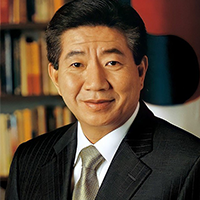
Roh Moo-Hyun (2003-08) was impeached roughly a year after taking power, although the move was unpopular with the public. He was later reinstated by the Constitutional Court. After leaving office, Roh was investigated for bribery allegations. He took his own life in 2009.
-
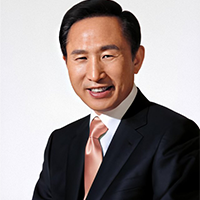
In 2017, Lee Myung-Bak (2008-13) was indicted on charges of embezzlement and bribery. In 2020, he was sentenced to 17 years in prison but was granted a pardon by Yoon in 2022.
-
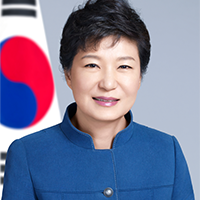
His successor, Park Geun-Hye (2013-17) was impeached in late 2016 and removed from office. She was sentenced to 24 years in prison for corruption and abuse of power but pardoned in 2021.
-
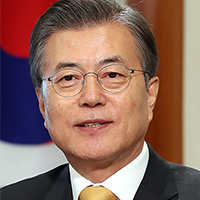
In September 2024, Moon Jae-In (2017-22) was named a suspect in a bribery investigation. The DP, Moon’s party, decried the investigation as “political retribution.”
-
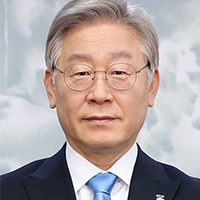
Current DP partly leader Lee Jae-Myung was convicted in November of violating election laws. but was given a suspended sentence. In January, Lee was stabbed in the neck by an assailant in a “politically motivated” attack.
With his declaration of martial law, Yoon has put South Korean democracy between a rock and a hard place. On one hand, he is accused of some of the most serious crimes a president can commit. The failure to investigate him for those alleged crimes would undermine democracy.
On the other hand, it is unlikely that his political rivals’ rush to remove him from office is motivated purely by a commitment to upholding democratic ideals. If Yoon is impeached and a new presidential election is held within months, Lee Jae-Myung has a reasonable chance of prevailing. If that happens, Lee would get a shot at the powerful office he lost in 2022 by the narrowest of margins, not to mention a get-out-of-jail-free card, as Lee’s recent conviction was suspended for only two years, and sitting presidents cannot be indicted while in office. He and his allies would also see the tables turned on Yoon, with the former prosecutor possibly becoming the prosecuted. On December 10, the opposition-led National Assembly passed a bill to appoint a special counsel to investigate Yoon and his top military aides.
At its core is a more fundamental pathology in South Korean politics: many leaders have internalized the lesson that political success depends not on negotiating with one’s opponents, but on neutralizing them. In addition, the country’s executive branch remains highly centralized, meaning that the winner-take-all model incentivizes candidates and leaders to engage in sometimes vicious partisan battles to claim the prize of the presidency. The possibility that these systemic vulnerabilities can be fixed might seem as remote as ever, but there is always the option of turning a crisis into an opportunity.
The ripple effects of South Korea's political instability
The political turmoil in Seoul casts significant uncertainty over South Korea’s role in the U.S.-Japan-South Korea trilateral relationship. Under Yoon’s leadership, Seoul adopted a forward-leaning posture, making strides to repair strained ties with Tokyo and strengthening the trilateral framework.
Already, allies and partners who hoped Seoul would serve as a stabilizing anchor in the North Pacific are growing anxious. Japan, which saw the October transition from Kishida Fumio to Ishiba Shigeru, now faces its own uncertainties in upholding the rules-based order. Adding to the unease is the looming return of Donald Trump to the U.S. presidency in January. Trump’s previous term left few illusions about his skepticism toward the traditional U.S.-South Korea alliance. Any renewed strain in Washington-Seoul ties would only compound the current sense of instability, arriving just when South Korea is struggling to move beyond the fallout of Yoon’s martial law decree.
The political upheaval in Seoul could not have come at a worse time. As key players in the Indo-Pacific brace for leadership transitions and policy reversals, what had been hopeful progress in trilateral co-operation now risks being undone, leaving allies scrambling for ways to preserve the fragile gains secured under Yoon’s tenure.
• With research assistance from APF Canada Research Scholars Tae Yeon Eom and Woojoo Hong. Edited by Ted Fraser, Senior Editor, APF Canada.
